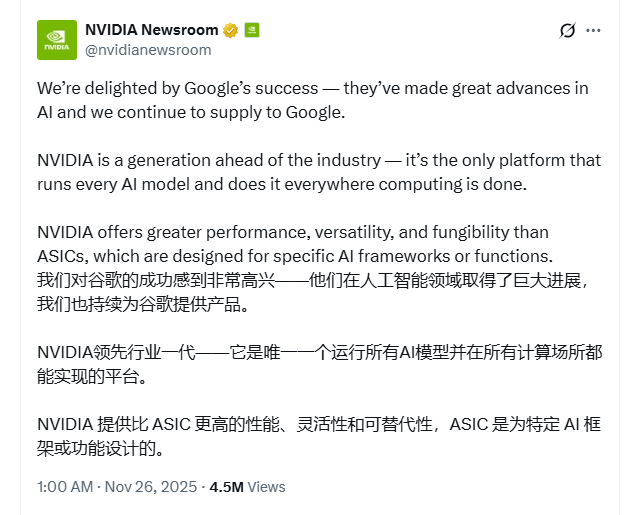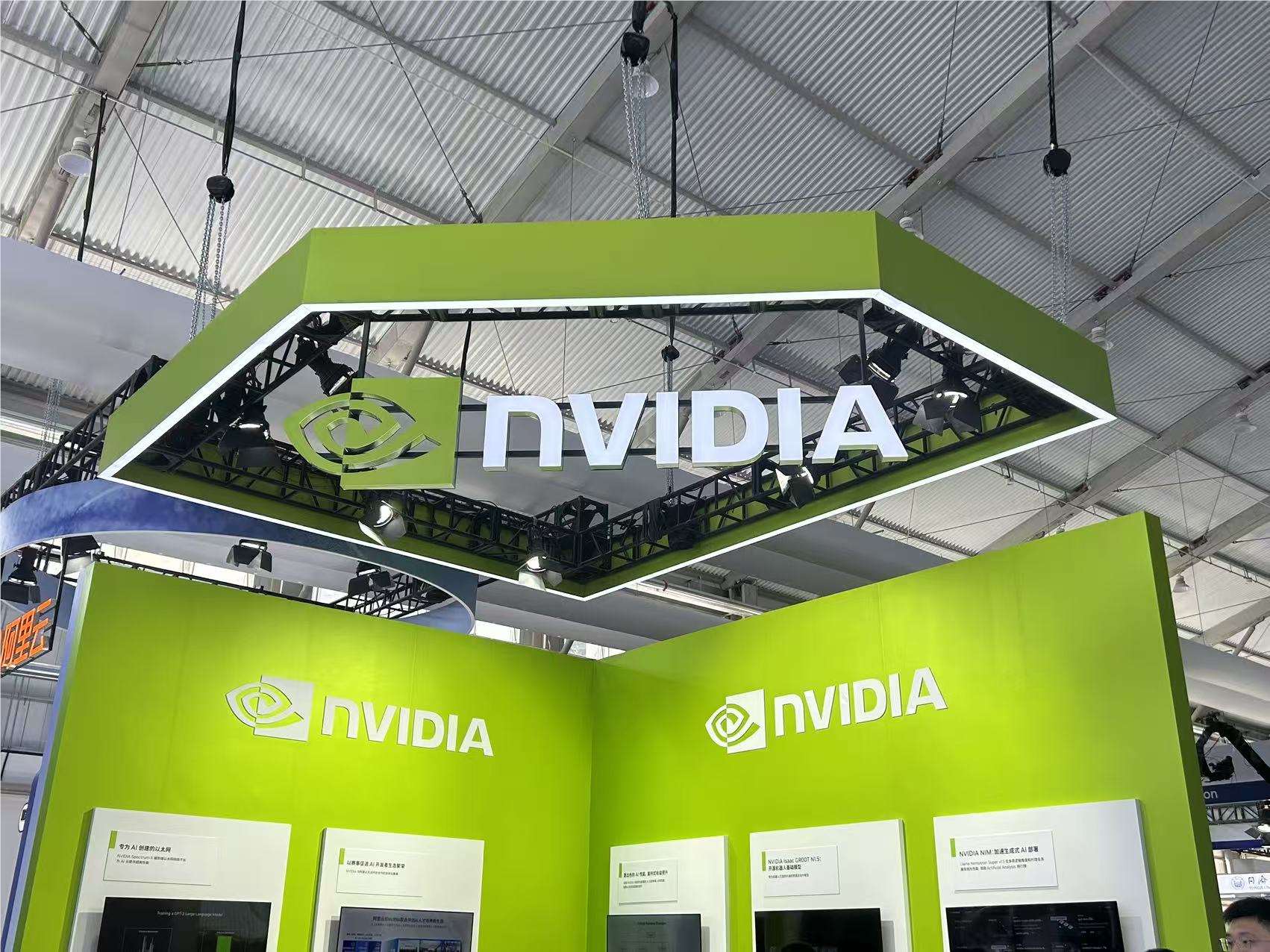Today, NVIDIA's social media expressed admiration for Google's rapid progress in artificial intelligence, while emphasizing NVIDIA's core position in AI infrastructure.

It also stated that NVIDIA remains the only platform globally capable of running all major AI models and covering all computing scenarios from cloud to edge, leading the industry by about one generation. When discussing competition with specialized AI chips (ASICs), Huang Renxun emphasized that NVIDIA's general-purpose GPU architecture significantly outperforms ASICs designed specifically for certain AI frameworks or functions in terms of performance, flexibility, and replaceability. This advantage enables NVIDIA to maintain an irreplaceable position in the current large model training and inference market.
Market analysts suggest that NVIDIA's statement is both a public support for one of its largest customers, Google, and a reaffirmation of its technological moat amid several tech giants developing their own AI chips.

According to Bloomberg, NVIDIA's stock experienced significant fluctuations during the U.S. market trading on November 25, closing down 2.59% at $177.82, a decrease of $4.73 from the previous trading day. The stock reached a low of $169.55 and a high of $178.15, with a trading volume of 317 million shares, indicating divided investor sentiment.
This decline was mainly attributed to a report by Bloomberg that Meta Platforms is negotiating with Google's parent company, Alphabet, to purchase Google's self-developed Tensor Processing Units (TPUs) for AI data center construction, which could replace some of NVIDIA's Graphics Processing Units (GPUs) orders.
受影响,英伟达股价早盘一度重挫逾6%,而Alphabet和Meta股价则分别上涨超6%和3%。 分析人士指出,这一潜在合作凸显科技巨头加速自研AI芯片的趋势,或对英伟达的垄断地位构成挑战,尽管英伟达仍主导全球AI训练市场。








